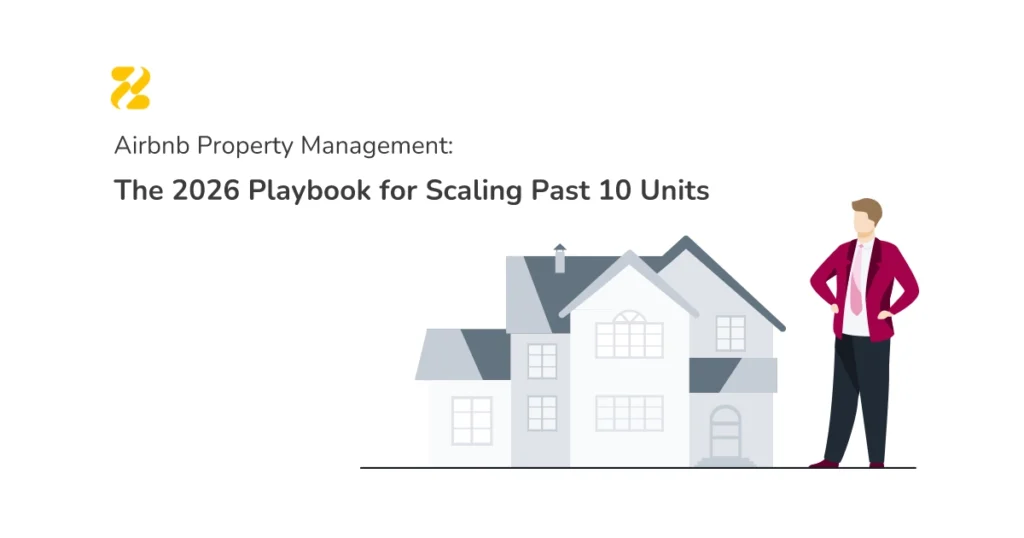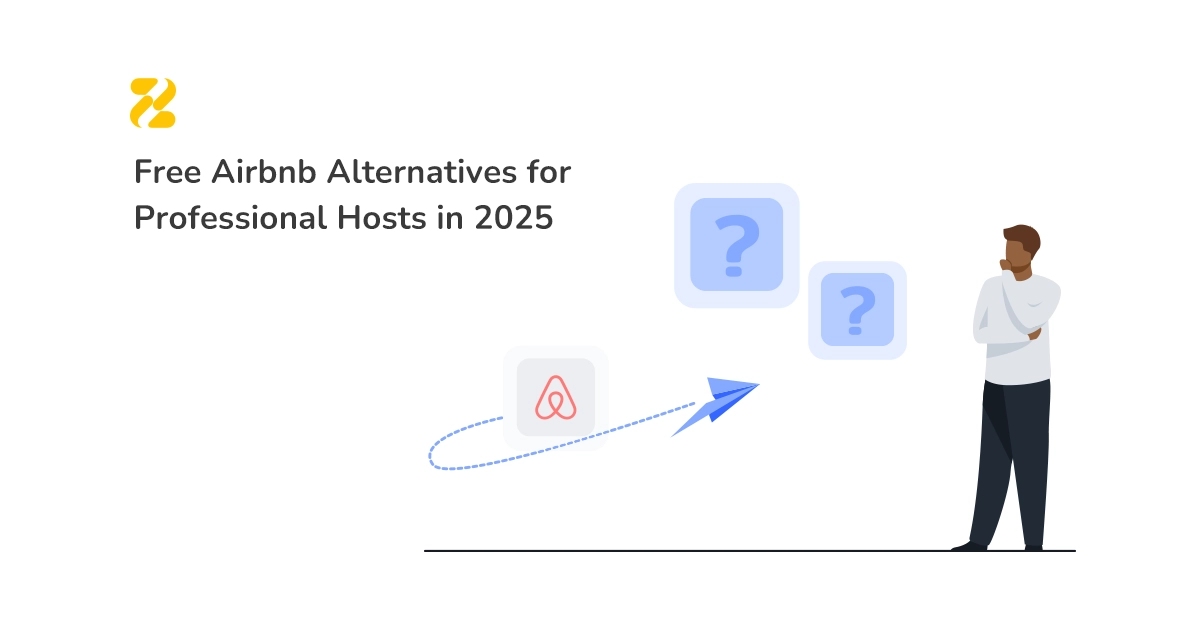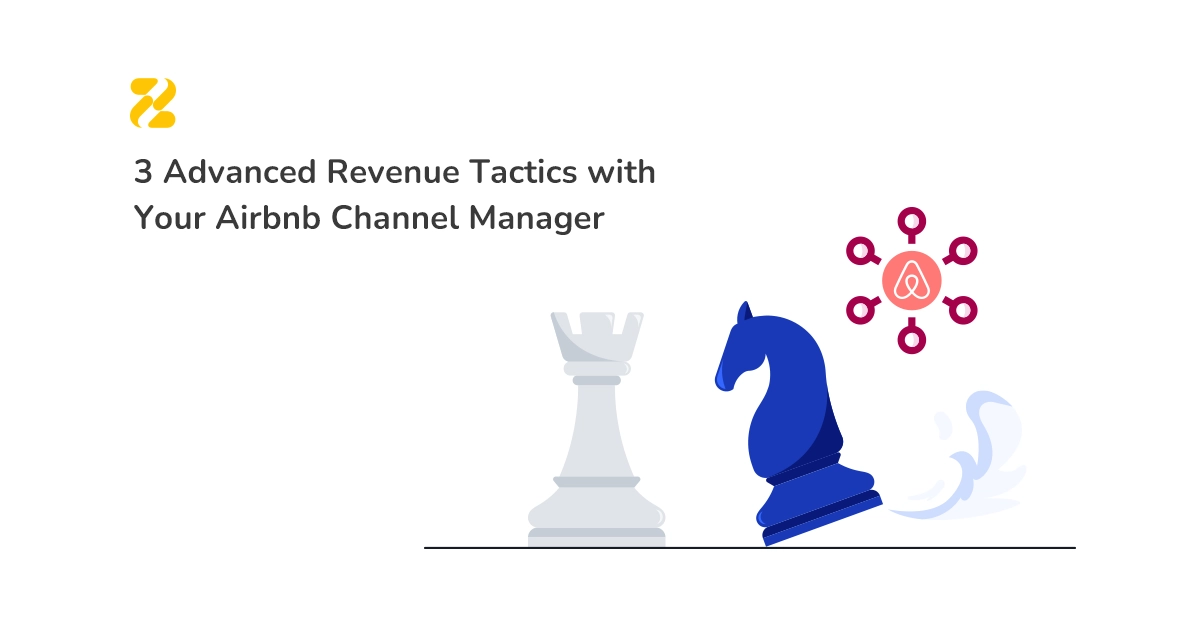Scaling an operation fundamentally transforms the nature of work. What begins as an entrepreneurial side hustle soon becomes a complex, logistics-heavy business once the crucial 10-unit threshold is surpassed. The personal touch and manual techniques that secured initial success are often the exact reasons operations fail when managing a portfolio of twenty or more properties. This critical turning point demands a strategic shift – one that requires a precise Airbnb property management playbook built for sustained, profitable growth.
Pioneering property managers, those ready to chart new territory and embrace scalable systems, understand that technology is not a luxury; it is the infrastructure required for professional longevity. This shift requires visionary technology that guarantees consistency and control across all units. The foundation of any 2026 playbook is robust short-term rental software designed specifically for comprehensive automation and massive portfolio scaling. It must also incorporate sophisticated features like trust accounting and a standardised guest vetting process to maintain owner faith and mitigate risk. To truly manage multiple Airbnb listings effectively, dedicated software is essential.
Table of Contents
Why Operations Break at 10+ Listings
The most common failure in scaling results not from a linear increase in workload, but from a fundamental collapse of consistent standards. As a portfolio expands, overseeing the same level of cleanliness, communication, and financial diligence across every unit becomes exponentially more complex.
The Administration Avalanche
When operating a small portfolio, a property manager might successfully manage reservations, guest interactions, and cleaning schedules using disconnected tools, spreadsheets, and manual communication. However, once the property count hits 10 or more, this disjointed approach creates an administrative avalanche. The mental burden of managing individual unit details, scattered channel calendars, and disparate service providers becomes overwhelming. To efficiently manage multiple Airbnb listings, reliance on such manual inputs must end.
Small, repeatable errors, such as delayed communication, a missed maintenance issue, or the catastrophic double booking, compound rapidly, leading to systemic operational failure. Relying on manual processes and disconnected spreadsheets for property management is like sending a fax in 2026; it is technically functional, but wildly inefficient and guarantees the business will be outpaced by more agile competitors.
The Erosion of Standards and Personalisation
The personal, high-quality touch that earns early five-star reviews is often the first casualty of growth. Without standardised systems, quality control drops across all facets of the business, including guest communication and maintenance logistics. The technology used by a growing business must enable personalisation at scale. This means utilising automated yet customised communications that maintain the human element while processing high volumes of interactions.
The core operational vulnerability at scale is an undermanaged ecosystem of services. Leading technology platforms emphasise unified operations dashboards, multi-channel distribution, and extensive integration ecosystems to counter this challenge. The effectiveness of a channel manager is paramount here. If the channel manager does not offer true, real-time syncing across all major booking platforms, the risk of financially damaging double bookings spikes dramatically.
Investing in comprehensive software is mandatory, as it acts as an essential insurance policy against lost revenue and systemic failure. Successfully managing this operational complexity and eliminating platform-hopping requires robust Airbnb property management solutions designed specifically for professional property managers scaling large portfolios.

What Owners Expect: Transparency Is the New Benchmark
For property managers transitioning to a large-scale operation, their relationship with property owners shifts. Owners become passive investors who demand professional-grade financial oversight, moving beyond simple landlord-tenant arrangements. This transformation requires the property manager to adopt the role of a fiduciary agent, making financial clarity non-negotiable. Providing real-time transparency, often via an Airbnb owner portal, is now a core competitive advantage.
The Mandate of Financial Clarity
Owners primarily demand three things: automated, accurate financial statements; timely, predictable payouts; and full auditability of all income and expense tracking.
Managing money for multiple third parties is significantly more complex than personal bookkeeping. It requires sophisticated features like Trust Accounting to guarantee the strict segregation of owner funds from the management company’s operating capital. Without this rigorous structure, the property manager assumes massive personal compliance risk. The necessary systems must track and categorise all income and expenses—both direct (cleaning, utilities) and indirect (property ownership costs)—and accurately prepare this data for tax reporting purposes, often required for filing on Schedule C or Schedule E. Systems that automate this reporting are the functional equivalent of an Airbnb owner portal.
This financial infrastructure is the ultimate expression of trust. A system that guarantees precise, auditable financial reporting acts as the bedrock of the property manager-owner relationship, safeguarding the business’s longevity.

The Automation Checklist for Scaling Success
To successfully manage multiple Airbnb listings, a property manager must implement system automation across three key areas: security and compliance, operational logistics, and revenue optimisation. Automation, at this scale, is not merely about saving time; it is a core component of risk mitigation and competitive differentiation.
Security and Compliance Automation
Scaling increases risk exposure. Automation must enforce legal and safety standards consistently across the entire portfolio. This starts with a mandatory online check-in process designed to collect guest data and ensure comprehensive guest vetting. Check-in instructions should only be released once the guest has been fully vetted.
Legal protection requires the automated generation and mandatory e-signing of rental agreements before check-in. Furthermore, financial risk mitigation relies on the implementation of automated security deposits and the use of 3-D secure payment links to verify financial transactions. These systems enforce mandatory security standards instantly, bridging the gap between guest expectation for speed and the PM’s need for security.
Operational Logistics Streamlining
The daily management of properties must be systematised. Automated task management systems must be implemented to trigger cleaning teams immediately upon guest checkout. Similarly, maintenance issues should be reported and dispatched using systems integrated directly into the property management system’s dashboard.
To maintain the crucial ‘personal touch’ at scale, property managers should utilise centralised templates and custom triggers for guest communications (e.g., pre-stay welcome, mid-stay check-in). These communications should be deployed automatically across multiple channels, including email, SMS, and Channel API messages. This automated communication system is vital to manage multiple Airbnb listings without diminishing guest service quality.
Revenue Optimisation Strategy
Manual pricing adjustment is functionally impossible when managing multiple Airbnb listings across various channels. Profit maximisation relies on executing a sophisticated Dynamic Pricing Strategy that adapts instantly to market demand and competitor shifts. Property managers must ensure their software integrates seamlessly with market-leading revenue management tools, such as Key Data. This integration is vital for benchmarking properties against local competition and adjusting pricing strategies in real-time to improve occupancy and revenue. The ability to integrate with multiple tools offers crucial flexibility for the expanding business.
KPI Framework for Strategic Growth
Professional Airbnb property management experts must shift their focus from tactical metrics (e.g., cleaning time) to strategic metrics that define portfolio health and long-term financial stability. Success is measured by the efficiency and sustained profitability of the entire enterprise, not just how busy individual units are. The KPI framework must include metrics that measure the profitability of growth itself.
The most critical strategic metric often overlooked for scaling is the Owner Satisfaction Score (OSS). Acquiring a new property (Property Acquisition Costs, or PAC) is expensive. Losing a property due to poor financial reporting or delayed payouts negates this investment. Therefore, the OSS is fundamentally a financial health metric, measuring the longevity of recurring revenue. Property managers must transition their strategy from focusing primarily on acquisition to prioritising superior retention through transparent Caregiver infrastructure.
Strategic KPI Framework for Scaling Property Managers (10+ Units)
| KPI Category | Example Metric | Why It Matters at Scale |
| Financial Health | Revenue Per Available Rental (RevPAR) / Net Income | Measures true earning potential and efficiency across the entire portfolio. |
| Growth Efficiency | Property Acquisition Costs (PAC) / Properties Won vs. Lost | Tracks the profitability of scaling efforts, ensuring bold growth is sustainable. |
| Relationship Management | Owner Satisfaction Score (OSS) / Owner Retention Rate | Direct measure of service quality; prevents churn which is costly to replace. |
| Operational Quality | Average Arrears / Review Score Consistency | Identifies systemic issues in rent collection and guest service before they cause major financial impact. |
Frequently Asked Questions
How do I reduce manual tasks when I manage multiple Airbnb listings?
The most effective way is to centralise operations using specialised short-term rental software. Implement automated triggers for guest communication, leverage smart-lock integrations for check-ins, and automate administrative tasks like invoice generation and 3-D secure payment collection. Focus on unifying your workflow within a single dashboard to eliminate platform-hopping.
How can I maintain a personal touch when managing hundreds of guests?
Maintaining personalised service requires sophisticated automation. Property managers must utilise centralised templates and custom triggers to deploy customised communications across multiple channels (email, SMS). This approach ensures prompt, high-quality guest interactions, which is vital for achieving high review scores and securing repeat business. This system allows you to scale without losing the human element.
Conclusion: Charting Your Next Growth Chapter
The 2026 playbook for professional Airbnb property management demands a non-negotiable pivot from manual effort to systemic automation. True scaling success lies in adopting visionary technology that reinforces financial trust and operational consistency. Effectively manage multiple Airbnb listings, focus on robust automation (ID checks, agreements, dynamic pricing), financial transparency powered by features like automated owner statements (the function of an Airbnb owner portal) and Trust Accounting, and strategic KPIs that measure both profit and owner retention. Systems designed for professional property managers are essential to secure your growth and maintain standards past the 10-unit threshold.
Image by pch.vector on Freepik.




